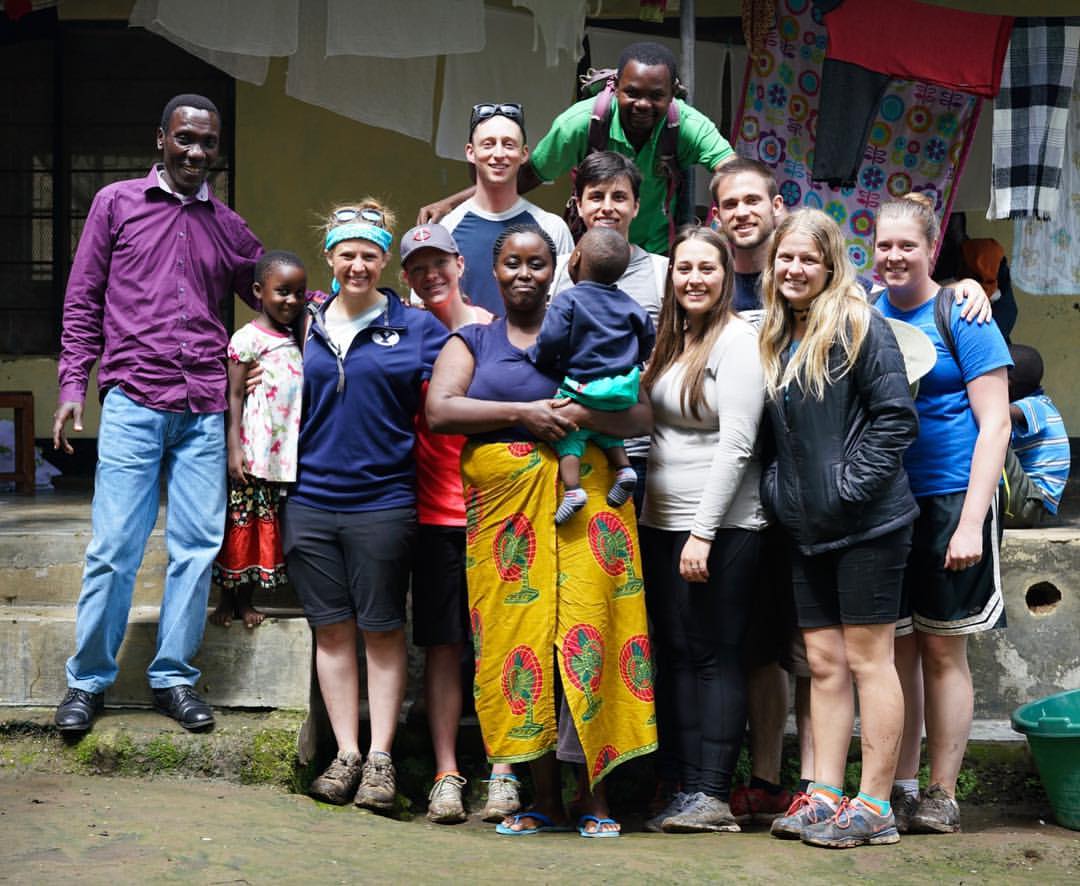
The rainy season in Tanzania lasted a week longer than expected. Students had to be creative when they needed to get from their base camp to town. Vans couldn’t drive through the muddy, water-soaked roads, so they found someone with a tractor who was willing to pull 35 people squeezed into a trailer.
The students were volunteering with Marafiki Africa, a nonprofit that seeks to empower eastern Africans by consulting with local businesses.
Andrew Barrett, a recent BYU graduate who studied management, was the program director for these students as they braved the downpour of the African rainy season.
Barrett said the organization works hard to make sure it’s not trying to solve a foreign problem with a Western solution, though it takes time to understand what will work for a different culture. The organization’s staff works hard to communicate with staff in Tanzania who have lived there, understand the culture and can help brainstorm ideas on how to improve the curriculum and make it culturally relevant.
BYU Nonprofit Leadership Alliance director Brad Harris said the populations international nonprofits serve need to be involved in the solution in order to make a real difference. He said it’s important for the people being served to take ownership of the solution and work together with nonprofits to improve lives.
This kind of initiative to tackle international problems is found in only two percent of all nonprofit organizations, according to the Urban Institute and Harris. But that didn’t stop recent BYU business graduate Nathaniel Gardner from starting Marafiki Africa during his undergraduate education.
Gardner has focused on medical service in Kenya and Tanzania for the last five years, but he wanted to make more of a difference through knowledge rather than monetary donations, according to Barrett. He realized undergraduate students could use their education to make a bigger difference in local businesses and decided to shift the focus of the organization.
Marafiki Africa offers three programs: business, general service and pre-health. The business program is the nonprofit’s main focus, according to board member and business consultant Lance Stevens.
The organization’s business program takes college students to businesses in eastern Africa to help teach best practices, basic accounting and goal-setting and brainstorm solutions to various problems many merchants in that area might have, according to Stevens and Gardner.
“The people in Africa are brilliant,” Stevens said. “I mean, they’re emotionally intelligent and they’re intellectually intelligent, but they don’t have the same kind of access to education that we have.”
Marafiki Africa tries to provide a positive volunteer experience for the students on the trip, as well as a long-term solution for these business owners, according to Barrett and Stevens. Gardner said the success of past business program participants was in part due to the format of the program.
“They did not succeed by getting a handout; they succeeded because they were taught how to lift themselves out of poverty,” Gardner said in an email.
The nature of running an international nonprofit from the United States brings a lot of challenges with it. For example, international communication and travel can be difficult and expensive, Barrett said. But he’s loved getting to make a difference in others’ lives and experience another culture, which is one of the biggest things volunteers look for in international nonprofit experiences, according to Harris.
“I think the best benefit of working with an international nonprofit is to see the way the rest of the world lives,” Harris said. “It gives us perspective.”




